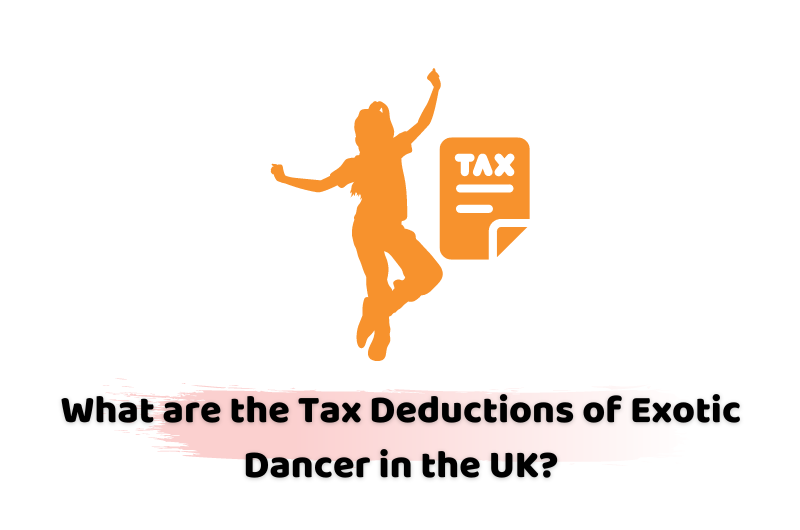If you belong to the circle of being in the role of exotic dancers in the UK, here is the guide that will interest you as it will cover all the relevant facts related to exotic dancer tax deductions and how it will work with HMRC. Some examples of allowable expenses include travel expenses, such as mileage or public transportation fares, to and from gigs; costumes, makeup, and other supplies used for performances.
Moreover, the fees are paid to agents or other professionals who help them find work, and rent or other expenses for a studio or other space used for rehearsals or practice. It’s also important to keep accurate records of expenses and only claim the expenses that are allowable.
Get in touch with one of our experts to learn more about exotic dancer tax deductions. We are available from 9:00 am – 05:30 pm Monday to Friday.
What is the Role of Exotic Dancers in the UK?
Exotic dancers are usually performers in entertainment venues. They are known for their dance routines and dancer clothing. Their role is to entertain their audience, and they often perform for tips. Some dancers may also offer dances or VIP services for an additional fee. While exotic dancing is legal in the UK, there are regulations in place to ensure that dancers are treated fairly and that venues are safe for both performers and patrons equally in the UK.
Are There any Tax Implications for Exotic Dancers in the UK?
Exotic dancers in the UK are required to pay taxes to HMRC. This includes income tax and National Insurance contributions. Dancers are considered self-employed, so they are responsible for paying their own taxes.
It’s important for dancers to keep accurate records of their earnings and expenses, as they can deduct certain expenses when calculating their tax liability. They may also be eligible for certain tax credits and benefits, such as Working Tax Credit or Universal Credit, depending on their circumstances.
How Do Expenses Work?
Exotic dancers in the UK can deduct certain expenses when calculating their tax liability. This means that they can subtract allowable expenses from their total income earned, which reduces their taxable income. It’s recommended to maintain ongoing accurate records of the expenses as well. Only claim the expenses that are allowable in this regard.
What are Tax Deductions for the Capacity of Exotic Dancers?
Here are some examples of expenses that exotic dancers in the UK can deduct:
1- Travel expenses, such as mileage or public transportation fares, to and from gigs
2- Costumes, makeup, and other supplies used for performances
3- Fees paid to agents or other professionals who help them find work
4- Rent or other expenses for a studio or other space used for rehearsals or practice
However, it’s best to check with a tax professional or HMRC to get the right kind of information on this. As discussed earlier that some examples of allowable expenses include travel expenses, such as mileage or public transportation fares, to and from gigs; costumes, makeup, and other supplies used for performances; fees paid to agents or other professionals who help them find work; and rent or other expenses for a studio or other space used for rehearsals or practice.
The Bottom Line
Now that you have gathered a fair amount of knowledge regarding exotic dancer tax deductions based on this discussion, it is understandable that exotic dancers in the UK can claim certain expenses as tax deductions, such as travel expenses, costumes, makeup, fees paid to agents, and rent or other expenses for a studio or other space used for rehearsals or practice. However, all the points considered in the above discussion must be catered to with great concern in order to experience a smooth process in this regard.
Reach out to our expert professionals to get your queries answered instantly. We will love to come up with the best possible solutions to your queries about exotic dancer tax deductions in the UK.
Disclaimer: The information about exotic dancer tax deductions in the UK is provided in this article including text and graphics. It does not intend to disregard any of the professional advice.





















































